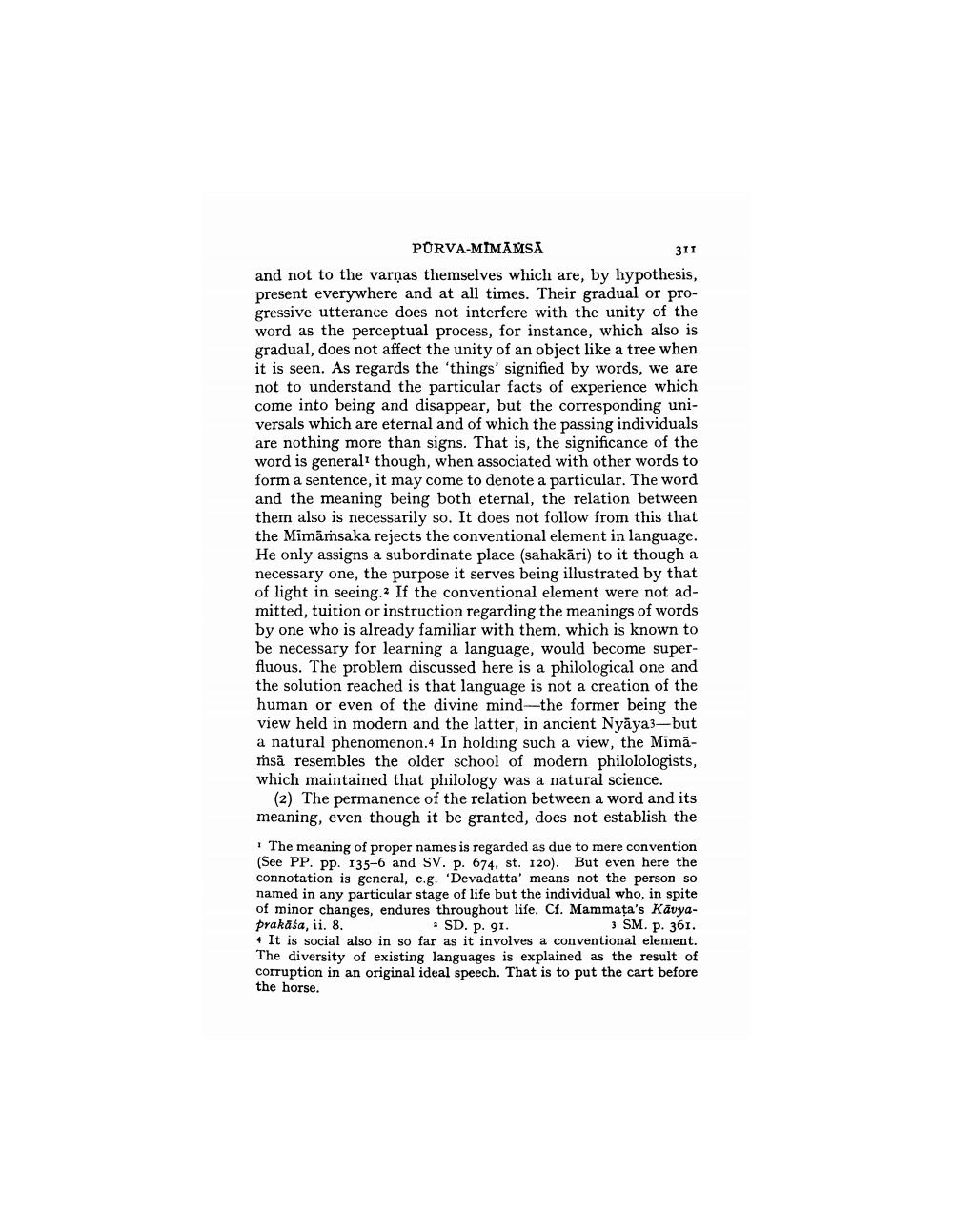________________
311
PORVA-MIMANSA and not to the varņas themselves which are, by hypothesis, present everywhere and at all times. Their gradual or progressive utterance does not interfere with the unity of the word as the perceptual process, for instance, which also is gradual, does not affect the unity of an object like a tree when it is seen. As regards the 'things' signified by words, we are not to understand the particular facts of experience which come into being and disappear, but the corresponding universals which are eternal and of which the passing individuals are nothing more than signs. That is, the significance of the word is general: though, when associated with other words to form a sentence, it may come to denote a particular. The word and the meaning being both eternal, the relation between them also is necessarily so. It does not follow from this that the Mimärsaka rejects the conventional element in language. He only assigns a subordinate place (sahakāri) to it though a necessary one, the purpose it serves being illustrated by that of light in seeing. If the conventional element were not admitted, tuition or instruction regarding the meanings of words by one who is already familiar with them, which is known to be necessary for learning a language, would become superfluous. The problem discussed here is a philological one and the solution reached is that language is not a creation of the human or even of the divine mind--the former being the view held in modern and the latter, in ancient Nyāya3-but a natural phenomenon. In holding such a view, the Mimamsä resembles the older school of modern philolologists, which maintained that philology was a natural science.
(2) The permanence of the relation between a word and its meaning, even though it be granted, does not establish the
The meaning of proper names is regarded as due to mere convention (See PP. Pp. 135-6 and SV. p. 674, st. 120). But even here the connotation is general, e.g. 'Devadatta' means not the person so named in any particular stage of life but the individual who, in spite of minor changes, endures throughout life. Cf. Mammața's Kavyaprakāśa, ii. 8. 1 SD. p. 91.
3 SM. p. 361. • It is social also in so far as it involves a conventional element. The diversity of existing languages is explained as the result of corruption in an original ideal speech. That is to put the cart before the horse.




